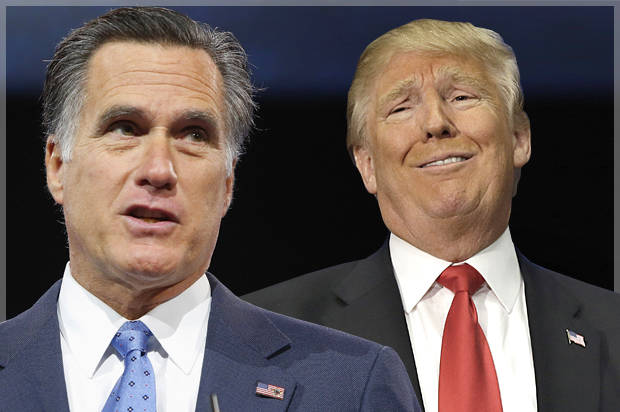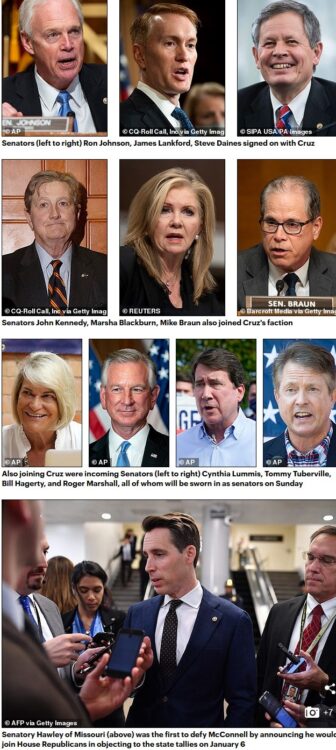Sen. Mitt Romney (R-Utah) today offered blistering criticism of a plan by at least 12 Republican senators to challenge the results of the election next week, warning that they “imperil” public trust.
“The egregious ploy to reject electors may enhance the political ambition of some, but dangerously threatens our Democratic Republic. The congressional power to reject electors is reserved for the most extreme and unusual circumstances. These are far from it,” Romney said in a statement.
Romney had previously told reporters Friday that objecting during Wednesday’s joint session, where Congress will formally count the Electoral College vote, would help “spread the false rumor that somehow the election was stolen.”
But his statement on Saturday comes after 11 GOP senators, led by Sen. Ted Cruz (R-Texas), warned that they will support challenges to President-elect Joe Biden’s Electoral College win — where he received 306 votes compared to Trump’s 232 — unless there is a commission created to conduct a 10-day audit.
“My fellow Senator Ted Cruz and the co-signers of his statement argue that rejection of electors or an election audit directed by Congress would restore trust in the election. Nonsense. … Members of Congress who would substitute their own partisan judgement for that of the courts do not enhance public trust, they imperil it,” Romney added.
The statement from the 11 Republican senators comes after Sen. Josh Hawley (R-Mo.) announced on Wednesday that he would object to the election results.
Hawley has not said which states he will object to, but has specifically called out Pennsylvania.
Dozens of House Republicans have said they will object to the election results on Wednesday.
The support of at least 12 GOP senators means that they will be able to force debates and votes on their challenges for the third time in history since 1887.
If an objection has the support of a member of the House and a member of the Senate, the two chambers separate and debate it for up to two hours.
Both the House and Senate would then vote on whether to uphold the objection, which would require a majority in both chambers to be successful.
Wednesday’s objections will fail — as both Hawley and the group of 11 have acknowledged — because Democrats control the House and several GOP senators have said they will oppose objections next week.
Romney, in his statement, warned that if their challenges were successful, the result would be that “partisans would inevitably demand the same any time their candidate had lost.” Romney also called out Trump, who has urged his supporters to come to Washington, D.C., on January 6, warning that the strategy could “lead to disruption, and worse.”
“I could never have imagined seeing these things in the greatest democracy in the world. Has ambition so eclipsed principle?” Romey asked.
Romney, the only GOP senator who voted for one of the articles of impeachment against Trump last year, is the latest GOP senator to formally weigh in after Cruz and 10 other GOP senators, or senators-elect, announced that they would support challenging the election results.
Sens. Lisa Murkowski (R-Alaska) and Pat Toomey (R-Pa.) formally announced on Saturday that they would vote against any attempt to challenge the election results on Wednesday.
“I urge my colleagues from both parties to recognize this and to join me in maintaining confidence in the Electoral College and our elections,” Murkowski said.
Toomey said the “evidence is overwhelming that Joe Biden won this election.”
Murkowski had previously criticized Hawley’s plan in comments to reporters, while Toomey spoke out against it in a caucus call on Thursday.
The decision by Republicans to challenge the election results has resulted in increasingly public divisions among the Senate GOP, many of whom have not said how they will vote.
Senate Majority Leader Mitch McConnell (R-Ky.) previously urged Republican senators to not join an effort by House conservatives to object, warning that it would only force a politically tough vote that won’t change the outcome of the election.
He told reporters in a separate call on Wednesday that he viewed the vote as one of the most important of his congressional career, calling it, according to GOP senators on the call, the “most consequential vote.”

